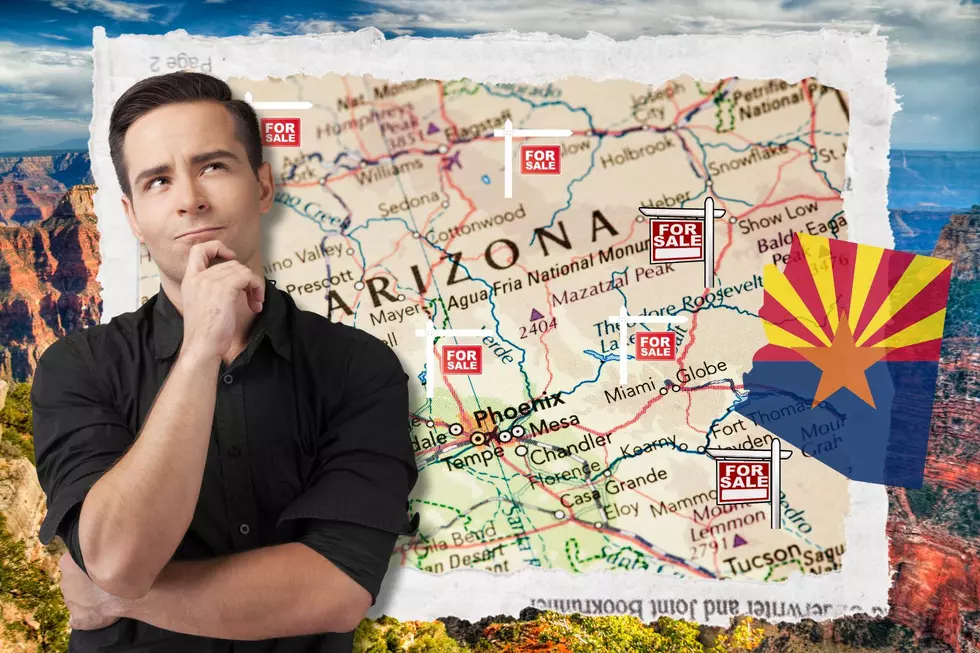
Is It Legal to Collect Rainwater in Arizona?
There's an old saw that says government would tax air if it could figure out how to do it. It's hard to believe anyone would make a law restricting your rights on something as natural as air or water. But leave it to the government to find a way.
Believe it or not, there are some states where collecting or harvesting rainwater is against the law. Smartwateronline.com has a list of states where collecting rainwater is either illegal or restricted:
- Utah
- You can only collect rainwater from rooftop surfaces, and only with a valid water right if you live in Utah. I have no idea how you get a "water right".
- Oregon
- Oregon is similar to Utah. You're only allowed to collect rainwater from rooftop surfaces. You can't drink any of the water you collect - you can only harvest rainwater for non-potable purposes.
- Ohio
- Rainwater collection is regulated, and you have to have a permit to collect rainwater in Ohio. You may also be required to have a storm water management plan. Whatever that means.
- North Carolina
- You can collect it, but you can't drink the water you collect in North Carolina. And you may need a plumbing permit. Oh, and a plumbing inspection. This is beginning to sound like a tax-heavy, expensive project.
- New Mexico
- Don't even think about collecting rainwater for commercial use in New Mexico. It's allowed domestically, but you might have to get a permit from the Office of the State Engineer.
What is Water Harvesting?
With so many rules in other states, even those with drought issues, even asking the question of whether or not it's legal to harvest water in Arizona made me pause.
If you've never heard of water harvesting, it's a way to collect and store rainwater for future use. Some people set up water harvesting systems to water their gardens or supplement household plumbing, like toilets.
Harvesting water can be a sustainable and cost-effective way to supplement your water supply. It seems like a great idea here in Arizona, where we deal with low rainfall and limited groundwater resources all across the state.
But is it Legal to Harvest Water in Arizona?
The answer is yes, you are allowed to harvest water in Arizona. With some exceptions and regulations.
According to the Arizona Department of Water Resources (ADWR), "water harvesting is allowed for domestic, municipal, industrial, agricultural, and recreational purposes, as long as it does not interfere with existing water rights or public welfare."
As you might have guessed, there are a few restrictions on how much water you can harvest and how you can use it.
Different Ways to Harvest Water
So, how do you harvest water? There are two types of water harvesting: active and passive.
Active water harvesting is capturing rainwater from rooftops or other surfaces, then storing it in a tank or barrel.
Passive water harvesting, which may be part of a xeriscaping plan, is directing rainwater to landscape features such as swales, basins, or berms that allow it to infiltrate into the soil and replenish the groundwater.
When Do You Need a Permit to Harvest Water in Arizona?
Active water harvesting requires a permit from the ADWR if you plan to, "store more than 10,000 gallons of water at a time, or if you plan to use the water for anything other than domestic purposes."
Domestic purposes would be things like using the harvested water for drinking, cooking, washing, sanitation, and irrigating your home garden or lawn.
Learn About Water Harvesting
If you've ever been curious about water harvesting in Arizona, tap into the resources with the University of Arizona Cooperative Extension offices across the state. You can find them in every county throughout Arizona and they're very knowledgeable.
Be sure to sign up for one of the water harvesting tours or workshops when they become available. In many cases, these events are free or very low cost, and they can help you get started Harvesting Water in Arizona.
LOOK: The most expensive weather and climate disasters in recent decades
More From K101









